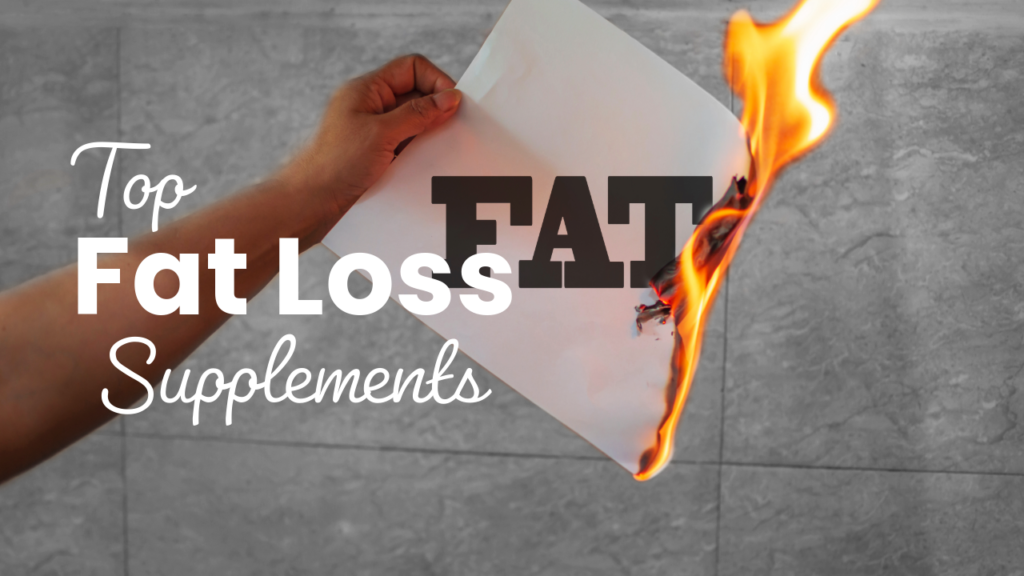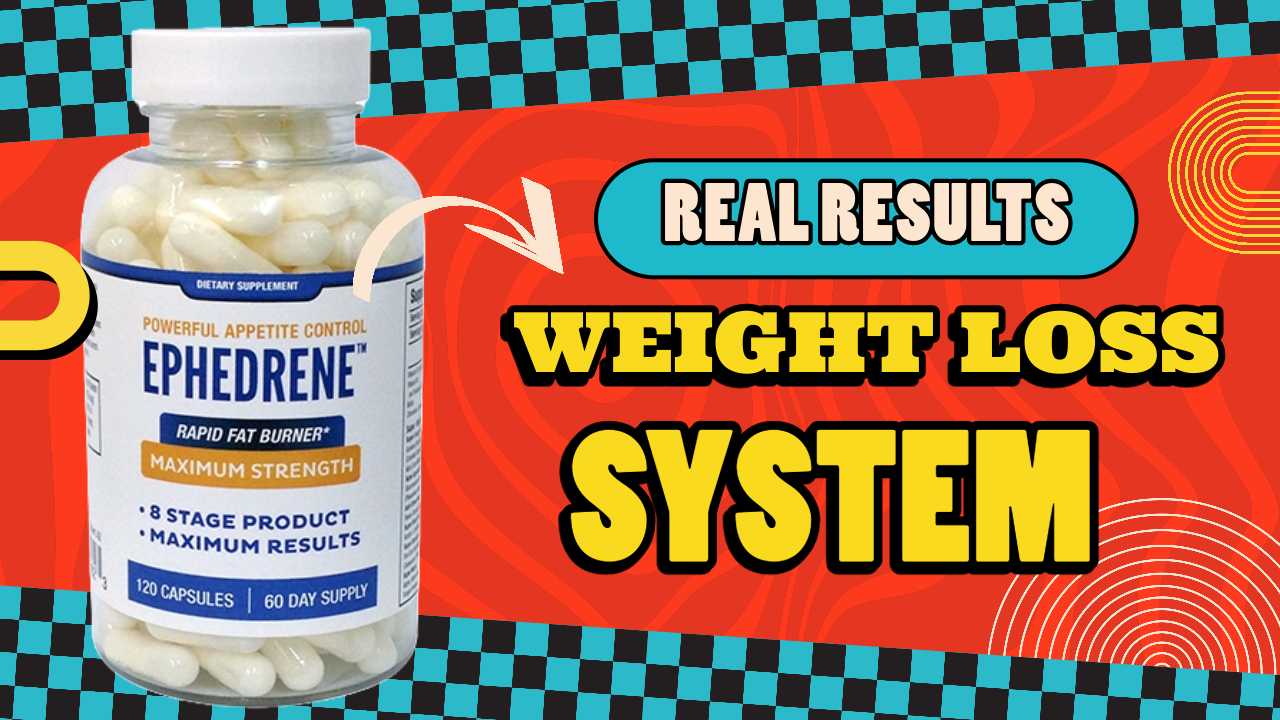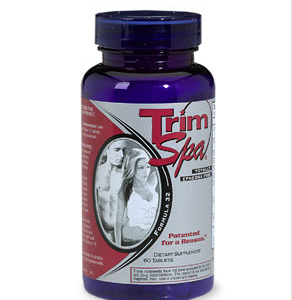Exploring the best fat loss supplements can be a pivotal step for many in their weight management journey, offering aid to those looking to enhance their metabolism and achieve better weight loss results. Protein powder, fiber, and essential nutrients like magnesium and B vitamins have been identified as key components that support weight loss through various mechanisms such as increasing satiety, boosting metabolic rates, and enhancing the body’s capability to utilize nutrients for energy. Despite the promising assistance these supplements offer, incorporating a reduced-calorie diet and regular exercise remains the most effective method for sustainable weight management.
Given the wide array of options, from fat burner pills to thermogenic supplements, selecting the right product—such as the best thermogenic fat burner or the best pill to lose belly fat—requires careful consideration. Understanding the efficacy, potential risks, and recommended dosage of these supplements is crucial. For individuals exploring options for enhanced weight loss support, engaging with a healthcare provider to discuss the best weight loss pills and any prescription medications fitting their health profile is advised. This step ensures that users not only make informed decisions about adding supplements like magnesium or B vitamins to their regimen but also align their choices with their overall health goals and conditions.

Understanding Fat Loss Supplements
Fat loss supplements, often referred to as fat burners, are designed to aid in weight management by enhancing metabolism, suppressing appetite, and boosting energy levels. Here’s a closer look at the types of supplements available and their key components:
Types of Fat Loss Supplements:
- Thermogenic Fat Burners: Products like LIPO-X5, ASASYN, and Carnitine Shot are popular for their potential to increase body temperature and metabolic rate, thereby aiding in fat burning.
- Appetite Suppressants: Supplements containing ingredients like soluble fiber can help control hunger, making it easier to adhere to a calorie-restricted diet.
- Metabolism Boosters: Ingredients such as caffeine and green tea extract are common in many fat burner supplements for their role in stimulating the nervous system and potentially enhancing calorie burn.
Key Ingredients in Fat Loss Supplements:
- ⍺-Lacys Reset: A patented formula found in products like PhenQ, known for its weight loss benefits by accelerating metabolism and reducing body fat.
- Caffeine: Stimulates the nervous system and may help burn additional calories. It’s worth noting that some supplements may contain higher caffeine levels than typical dietary sources.
- Green Tea Extract: Assists in calorie burning and reduces the amount of fat absorbed from food, making it a staple ingredient in many fat burner formulations.
- Carnitine: While it boosts metabolism and energy levels, its direct weight loss benefits remain under scrutiny.
- Yohimbe: Derived from the bark of an evergreen tree, this compound is included for its potential weight loss benefits but comes with a risk of adverse effects like increased blood pressure and heart problems.
- Soluble Fiber: Helps control appetite and may prevent the body from absorbing fat from foods, contributing to weight management.
Considerations and Cautions:
- Regulation and Safety: Fat burner supplements are not regulated by the FDA, raising concerns about the accuracy of their labeling and the presence of potentially unlisted or harmful ingredients.
- Health Risks: Some “natural” supplements have been associated with liver damage and other serious health issues. It’s crucial to consult with a healthcare professional before starting any supplement, especially for those with pre-existing health conditions or those taking medication.
- Efficacy: The effectiveness of these supplements is widely debated, with limited scientific evidence supporting many of the claims made by manufacturers. A balanced diet and regular exercise remain the cornerstone of effective weight management.
In summary, while fat loss supplements can offer additional support for those looking to enhance their weight management efforts, understanding the types, key ingredients, and potential risks is essential. Always consult a healthcare provider to ensure any supplement choice aligns with individual health needs and goals.
Efficacy and Clinical Evidence
When considering the efficacy and clinical evidence behind top fat loss supplements, it’s essential to delve into the research supporting their effectiveness, as well as the recommended dosage and potential risks involved. The landscape of weight loss supplements is vast, with various products claiming to offer the best results. Here’s a closer look at some key findings from clinical studies:
- Green Tea Extract and Garcinia Cambogia:
- Green tea extract has been shown to decrease waist circumference and body weight when consumed at a dosage of 800 mg/day for less than 12 weeks or 500 mg/day for 12 weeks .
- Garcinia cambogia supplementation can cause weight loss of 0.88 kg without affecting BMI and 1.34 kg with a reduction in fat mass, BMI, and waist circumference when taken for 8-12 weeks.
- Curcumin supplementation of “>=1000 mg/d” for “>=8 weeks” decreases body weight by -1.14 kg and BMI by -0.48 kg/m2.
- Prescription Weight Loss Medications vs. Dietary Supplements:
- Prescription medications such as GLP-1 agonists, Orlistat, Phentermine/topiramate, Naltrexone/bupropion, Setmelanotide, and Appetite suppressants can result in around 5-10% weight loss.
- A systematic review of 315 clinical trials on dietary supplements and alternative therapies for weight loss found no high-quality evidence of their efficacy, with only 16 trials reporting statistically significant weight reduction, which were not clinically significant.
- Safety Concerns and Regulatory Oversight:
- The FDA does not review or approve over-the-counter weight loss supplements for safety or efficacy, leading to potential safety concerns with adulterants such as sibutramine, fenfluramine, laxatives, and diuretics.
- Clinical studies for weight loss supplements often lack a control group, are not double-blinded, and require lifestyle changes, making it difficult to ascertain their true efficacy.
- The AMA Journal of Ethics discourages clinicians from recommending over-the-counter dietary supplements for weight loss due to unknown safety and efficacy, incomplete ingredient lists, and potentially misleading advertising.
In summary, while certain supplements like green tea extract and Garcinia cambogia show promise in aiding weight loss, the overall landscape of dietary supplements and alternative therapies for weight management is marked by minimal evidence of significant weight loss, potential safety concerns, and a lack of regulatory oversight. It’s crucial for individuals considering these options to consult with healthcare professionals and choose products backed by solid research and clinical evidence.

User Experience and Satisfaction
User experiences and satisfaction with fat loss supplements vary widely, reflecting the diverse outcomes and reactions individuals have to these products. To provide a clearer picture, here’s a breakdown of feedback from actual users:
- Positive Experiences:
- Weight Loss and Energy Boost: Some users reported significant weight loss, such as a 35-pound loss over eight weeks with Jacked Factory Burn-XT, attributing success to both the supplement and a restrictive diet. Others noted feeling more energetic and experiencing appetite suppression, which contributed to their weight management efforts.
- Appetite Suppression: Users have found certain supplements effective in curbing hunger, which helped them reduce caloric intake. For instance, a thermogenic fat burner was mentioned for its natural appetite suppression and metabolism-boosting effects.
- Commercial Weight Loss Programs: Participants in programs like WW (formerly Weight Watchers) reported significantly greater weight loss compared to those attempting weight loss on their own, highlighting the potential benefits of structured support alongside supplementation.
- Negative Experiences:
- No Weight Loss: Despite following recommended dosages and maintaining a healthy lifestyle, some users did not see any weight loss, leading to disappointment and perceptions of money wasted, as was the case with a customer using Burn-XT.
- Side Effects: Reports of side effects such as digestive issues, insomnia, constipation, and a build-up of tolerance over time have been shared by users, indicating that not all experiences with these supplements are positive.
- Adverse Drug Reactions: Consumers of weight loss supplements have been almost twice as likely to experience adverse drug reactions compared to those using body-building supplements, underscoring the importance of cautious use.
- Product-Specific Feedback:
- alli (Orlistat): Recognized for its mechanism of preventing the digestive tract from absorbing up to 30% of fat consumed, with potential side effects including bloating and oily discharge.
- Stripfast5000 Fire Bullets with K-CYTRO: Praised for its blend of active ingredients like green tea and cayenne pepper, though specific side effects were not detailed.
- NaturaLife Labs Acetyl L-Carnitine 1,500 mg: Offers support for fat metabolism with possible side effects such as stomach upset and fishy body odor.
Given the mixed reviews, it’s evident that user experience with fat loss supplements can range from highly beneficial to disappointing. Factors such as individual health conditions, adherence to dosage recommendations, and lifestyle choices play significant roles in determining outcomes. Consulting healthcare professionals before starting any supplement regimen is crucial to align choices with personal health goals and mitigate potential risks.
Potential Risks and Side Effects
When considering fat loss supplements, it’s crucial to be aware of potential risks and side effects that could impact one’s health. Here’s a breakdown of key considerations:
Medical Considerations and Interactions:
- Always assess your medical history, allergies, and current medications before starting any supplement to avoid adverse reactions.
- Inform your healthcare provider about all supplements you’re considering, especially before surgeries or medical procedures.
Ingredient Check:
- Opt for supplements with natural ingredients and steer clear of synthetic ones to minimize health risks.
- Research each ingredient for known side effects; for instance, yohimbine can lead to high blood pressure and anxiety.
Regulatory and Safety Concerns:
- The lack of strict FDA regulation for dietary supplements means they’re often not rigorously tested for safety or efficacy before hitting the market.
- Be vigilant about products that don’t clearly list all ingredients, as this could signal the presence of harmful or undisclosed substances.
Reported Health Issues:
- There have been increasing reports of severe health problems such as liver failure and kidney impairment linked to the use of fat loss supplements.
- Certain supplements have been associated with worsening chronic conditions and even causing death in otherwise healthy individuals.
Cost and Efficacy of Prescription Weight Loss Drugs:
- While prescription drugs for weight loss are an option, they may be expensive and not always covered by insurance.
- These medications also come with their own side effects, including nausea and increased heart rate, and their effectiveness often requires dietary changes and regular exercise.
Lifestyle Considerations:
- The most effective and safest method for weight loss remains a balanced diet and regular physical activity, creating a caloric deficit without the need for supplements.
Given these considerations, it’s evident that while fat loss supplements might offer some benefits, they also come with significant risks and side effects. Consulting with healthcare professionals and prioritizing lifestyle changes are essential steps for anyone looking to manage their weight safely and effectively.
How to Choose the Right Supplement for You
Choosing the right fat loss supplement involves several critical steps to ensure safety, efficacy, and value for money. Here’s a structured approach to making an informed decision:
- Consultation and Medical Review:
- Before starting any supplement, it’s essential to consult with a healthcare provider or specialist. This is particularly important if you’re already in a caloric deficit but not seeing results, take prescription medications, have a health condition, or experience symptoms like gastrointestinal distress.
- Inform your healthcare provider about your intention to start a supplement to avoid adverse reactions and interactions.
- Understanding Your Needs:
- Clearly define your weight loss objectives to choose a supplement that aligns with your goals.
- Consider your lifestyle, dietary habits, and any specific health concerns that could influence your choice.
- Research and Selection:
- Product Quality: Focus on reputable brands to ensure you’re getting a high-quality product. This reduces the risk of consuming harmful or ineffective ingredients.
- Form of Supplement: Decide whether you prefer pills, powders, or liquids based on your lifestyle and ease of use.
- Cost vs. Benefit: Evaluate the price of the supplement and consider if the potential benefits justify the cost. Look for products offering value through bulk purchase discounts or guarantees, like PhenQ, which provides a 60-day money-back guarantee and free shipping.
- Ingredient Analysis: Read product labels carefully, paying close attention to the list of ingredients and their dosages. Avoid supplements with ingredients known to cause adverse effects or those lacking scientific support for their efficacy.
- Dosage: Always adhere to the recommended or prescribed dosage to avoid potential side effects and ensure the best results.
- Monitoring and Evaluation:
- Track your results after starting the supplement to judge its efficacy. This can help you decide whether to continue using the product or consider alternatives.
By following these steps and considering factors like medical advice, personal objectives, product quality, and cost, individuals can make a more informed decision when selecting a fat loss supplement. Always prioritize safety and efficacy over quick fixes or sensational marketing claims.
Conclusion
Reflecting on the comprehensive exploration of fat loss supplements, it is clear that while they offer an additional avenue for those striving to enhance their metabolic efficiency and shed excess weight, they are not standalone solutions. The synthesis of scientific evidence underscores the pivotal role of integrating these supplements with a disciplined regiment of a reduced-calorie diet and regular physical exercise. This approach not only amplifies the potential benefits of supplements such as protein powders, fiber, and essential nutrients but also aligns with sustainable weight management practices. Furthermore, the importance of consulting healthcare professionals cannot be overstated, ensuring that any supplement regimen embarked upon is conducive to one’s overall health objectives and is devoid of adverse effects.
As the quest for optimal weight loss strategies continues, it becomes increasingly evident that the efficacy of fat loss supplements is intricately linked to the broader context of an individual’s lifestyle choices and health regimen. Given the myriad of options and the varying degrees of scientific backing, discernment and due diligence in selecting the right supplements—coupled with a commitment to holistic health practices—emerge as the cornerstone of effective weight management. The dialogue surrounding fat loss supplements and their role in fostering weight loss is a testament to the dynamic interplay between nutrition, exercise, and informed supplementation, highlighting an ongoing journey towards achieving health and wellness goals.
References
Ansari RM, Omar NS. Weight loss supplements: boon or bane? Malays J Med Sci.
2017;24(3):1–4. https://doi.org/10.21315/mjms2017.24.3.1
Watanabe, Mikiko, Renata Risi, Davide Masi, Alessandra Caputi, Angela Balena, Giovanni Rossini, Dario Tuccinardi, Stefania Mariani, Sabrina Basciani, Silvia Manfrini, and et al. 2020. “Current Evidence to Propose Different Food Supplements for Weight Loss: A Comprehensive Review” Nutrients 12, no. 9: 2873. https://doi.org/10.3390/nu12092873
Jessica M. Prather, Christine M. Florez, Amie Vargas, Bella Soto, Abby Harrison, Darryn Willoughby, Grant Tinsley & Lem Taylor(2023)The effects of a thermogenic supplement on metabolic and hemodynamic variables and subjective mood states,Journal of the International Society of Sports Nutrition,20:1,DOI: 10.1080/15502783.2023.2185538
Dini, Irene, and Andrea Mancusi. 2023. “Weight Loss Supplements” Molecules 28, no. 14: 5357. https://doi.org/10.3390/molecules28145357
Tate DF, Lutes LD, Bryant M, et al. Efficacy of a Commercial Weight Management Program Compared With a Do-It-Yourself Approach: A Randomized Clinical Trial. JAMA Netw Open. 2022;5(8):e2226561. doi:10.1001/jamanetworkopen.2022.26561






